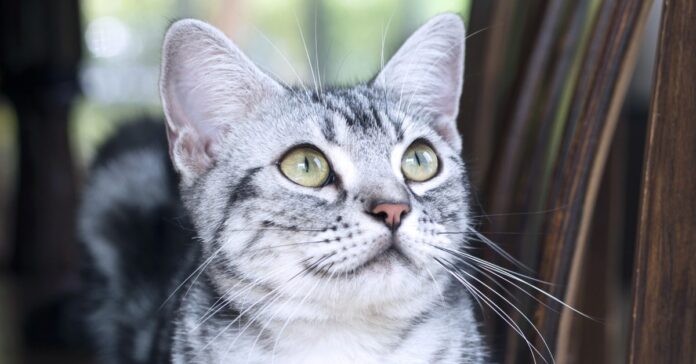Last Updated on August 20, 2023 by Fumipets
Do Cats Know Their Names?
Do Cats Know Their Names? explores the intriguing question of whether cats recognize and respond to their names. The article examines recent studies and observations to shed light on feline behavior and communication.
It discusses the factors that influence a cat’s response to their name and the significance of name recognition in the human-cat relationship.
Cats
Frank, Porkchop, Mittens, and Kitty. No matter what you call your cat or what cute nicknames you come up with for her, domesticated cats can understand their names. Although the study on cat behavior isn’t as extensive as that on dog behavior, recent studies have shown that cats do listen for their names.
Cats Pay Attention to Us
Cats are designed to pay great attention to their surroundings and are independent hunters by nature. Throughout our history with cats, the tasks we have assigned them have tended to be increasingly independent in character and need our absence to be successful (such as hunting mice).
Cats, on the other hand, are also social beings with nuanced emotions that they share with humans and use in decision-making. They consider their people to be excellent data sources. For instance, studies reveal that cats are more likely to focus on unfamiliar items and feel good if their owner does as well.
They truly are paying attention, even if their actions and body language may not be as evident to us as our dogs’ are (what’s a cat without a little mystery?).
Why Doesn’t Your Cat Come When Called?
Even if your cat can easily distinguish between noises and signals like their name, it doesn’t mean they will react in a certain way.
Even while you may truly want your cat to answer your call at any time, cats sometimes find themselves… already occupied. A cat’s response will probably rely on their feline nature, motivation, and present emotions. The mere hearing of their name isn’t nearly as motivating as you would expect when you’re not providing nummies or play sessions. Is your cat taking a nap? Or is your cat dozing off in their preferred hiding place? When that happens, your sophisticated cat is likely to choose what they are doing right now above what you want them to do (and who can blame them?).
“All too frequently, we assume that cats will react as quickly as dogs. Owners who make the comparisons are really doing both animals a harm. Stop comparing cats to dogs and start loving and appreciating them for who they are, advises Pam Johnson-Bennett, CCBC, author and proprietor of Cat Behavior Associates, LLC.

Use Your Cat’s Name Throughout The Day
Try to include your cat’s name in other activities that catch their interest to improve name recognition and make a cat more likely to react to your summons. Say your cat’s name just before setting down the food dish, for instance, if you feed them on a schedule and they get enthusiastic about mealtimes. When they approach you for petting or before you hand them a favorite toy, try calling their name.
“There’s more of a chance of a response if a cat associates something positive with the name, especially when spoken by a familiar human,” Johnson-Bennett claims.
Never use punishment on your cat, and be very careful not to link punishment to your cat’s name. According to Johnson-Bennett, calling the cat by name to administer any type of punishment trains the cat to refrain from answering in the future.
Teach Your Cat Their Name Using a Clicker
When you know what motivates and reinforces cats, they become terrific learners. In fact, clicker training works wonders for them. After your cat learns that the clicker’s sound indicates that they will get a reward, you may use the clicker to teach your cat its name as well as signals like “come.”
Keep in mind that your cat should enjoy the training. Stop your session and wait for another chance when your cat is more likely to be motivated if they become bored, leave, or loses interest in the goodies.
Questions & Answers:
Do cats truly recognize their names?
Recent research suggests that cats can indeed recognize their names, though their response may vary based on factors such as their environment, socialization, and individual personality.
How do researchers determine if cats know their names?
Researchers conduct experiments involving various spoken words, including the cat’s name and similar-sounding names, to observe the cat’s reaction. Cats that consistently show heightened awareness or responses to their names indicate some level of recognition.
Why do some cats appear not to respond to their names?
Cats are independent animals, and their lack of response could be due to their selective attention or the context in which they are called. Some cats might not show a visible response but may still recognize their names.
Can cats distinguish between their names and other words?
Studies suggest that cats can differentiate their names from other words, even when spoken by different people. They may react with ear movements, tail flicks, or turning their heads.
What is the significance of a cat knowing its name?
Name recognition can contribute to a cat’s sense of familiarity and belonging within a household. While they may not respond like dogs, cats can form unique bonds with their owners and display affection in subtle ways.
“Do Cats Know Their Names?” delves into the intriguing realm of feline cognition and communication. By exploring studies and behaviors related to name recognition, the article offers insight into the complexity of the human-cat relationship and the ways in which cats interact with their environment and the people around them.


















